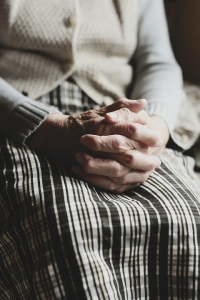Spotting Depression in the Elderly
Depression has long been chalked off as “just feeling blue” or a state of sadness, but a recent increase in awareness has shed much-needed light on the mental health issue. Unfortunately, while depression in young or middle-aged people is more recognized, depression in the elderly often goes undetected.
According to the CDC, there are over 7 million adults who age 65 or above and 17% of that age group suffers from depression. Many experience depressive episodes after the age of 60. But only 10% of the group receive any treatment.
A major reason why depression is so under-recognized in the elderly is that the symptoms of depression in old age are different than those in younger people. Those symptoms are often just attributed as a normal part of aging and so senior adults seldom receive proper treatment.
How Is Depression in the Elderly Different From Those That Are Younger?
The common signs of depression that manifest in younger people are usually not there in case of depression in the elderly. Later-life depression is often accompanied by various other medical illnesses and usually tends to last longer as well.

Depression in the elderly often brings with it increased risks of heart diseases. Psychosis is another secondary sign accompanied by depression. 3.6% of the elderly who have been hospitalized with depression experience psychosis afterward. 17% of the people who suffer from dementia or Alzheimer’s have depression as well.
Symptoms of Depression in the Elderly
If you want your senior loved one to lead a healthy and happy life, keep a look out for the following symptoms:
- Persistent sadness or constant feelings of despair
- Unexplained pains and aches
- Isolating from others and losing interest in socialization
- Drastic weight loss and a loss of appetite
- Persistent feelings of helplessness and hopelessness
- Lack of energy and motivation
- Irregularities in sleeping patterns (insomnia, difficulty staying asleep, drowsiness, oversleeping, etc.)
- Feelings of worthlessness and loss of self-worth, worrying about being a burden
- Slowed speech or movement
- Possible increase in the use of substances like alcohol
- Persistent thoughts about death
- Memory problems, dementia, etc.
- Neglecting their personal care, hygiene, forgetting to take medicines, skipping meals.
The elderly will often not be vocal about their depression so it’s up to their caregivers to keep a lookout for any red flags and get them immediate care.
Living together with an age-mate can make a world of difference in warding off depression. With a wider social circle to interact with and keep them company, living in a senior care community can help your senior loved ones. Get in touch with us at AvantGarde today for more details.

